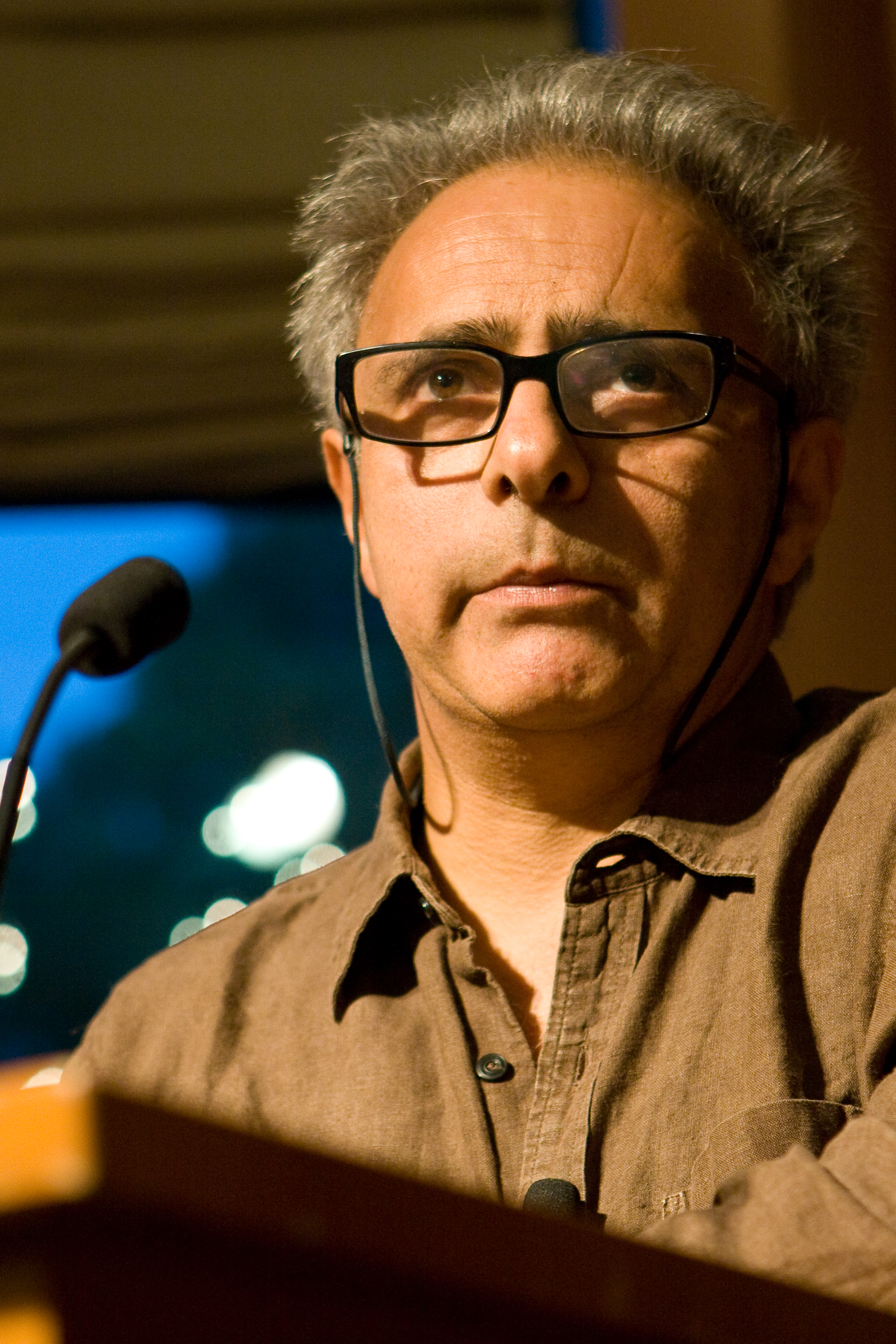 Hanif
Kureishi, CBE (born 5 December 1954) is a British playwright, screenwriter,
filmmaker and novelist of Pakistani and English descent.[1]
In 2008, The Times included Kureishi in their list of "The 50 greatest
British writers since 1945".[2]
Hanif
Kureishi, CBE (born 5 December 1954) is a British playwright, screenwriter,
filmmaker and novelist of Pakistani and English descent.[1]
In 2008, The Times included Kureishi in their list of "The 50 greatest
British writers since 1945".[2]
He wrote My Beautiful Laundrette in 1985, a screenplay about a gay
Pakistani-British boy growing up in 1980s London for a film directed by
Stephen Frears.
The screenplay, especially the racial discrimination experienced, contained
elements from Hanif's own experiences as the only Pakistani student in his
class at school. It won the New York Film Critics Best Screenplay Award and an
Academy Award nomination for Best Screenplay.
Kureishi has twin boys (from his relationship with film producer Tracey
Scoffield[13])
and a younger son. Kureishi currently lives in West London.[3][6]
He was appointed Commander of the Order of the British Empire (CBE) in the
2008 New Year Honours.[14]
In 2013, Kureishi lost his life savings, intended to cover "the ups and downs
of being a writer", in a suspected fraud.[15]
Although he acknowledges his father's Pakistani roots (originating in Madras,
in British India, present-day Chennai, India), he rarely visits Pakistan. Upon
a 2012 visit sponsored by the British Council, he acknowledged that it was his
first trip to Pakistan in 20 years.[16]
Kureishi's family have accused him of exploiting them with thinly disguised
references in his work; Kureishi has denied the claims. His sister Yasmin has
accused him of selling her family "down the line". She wrote, in a letter to
The Guardian, that if her family's history had to become public, she
would not stand by and let it be "fabricated for the entertainment of the
public or for Hanif's profit".[3][17]
She says that his description of her family's working-class roots are
fictitious. Their grandfather was not "cloth cap working class", their mother
never worked in a shoe factory, and their father, she says, was not a bitter
old man. Yasmin takes up issues with her brother not merely for his thinly
disguised autobiographical references in his first novel, The Buddha of
Suburbia, but also for the image of his own past that he portrays in
newspaper interviews. She wrote: "My father was angry when The Buddha of
Suburbia came out as he felt that Hanif had robbed him of his dignity, and
he didn't speak to Hanif for about a year."[3]
Kureishi and his father did not speak for many months during the controversy.[3]
There was further furore with the publication of Intimacy, as the story
was assumed to be autobiographical.[3][6]
In 2013 Kureishi was appointed as a professor in the creative writing
department at Kingston University in London, where he was a Writer in
Residence.[1]
However, at The Independent Bath Literature Festival, 2 March 2014, he
stated that creative writing courses were a "waste of time" and commented that
99.9 per cent of his students were talentless.[18]
In 2014 the British Library announced that they would be acquiring the archive
of Kureishi's documents spanning 40 years of his writing life. The body of
work will include diaries, notebooks and drafts.[19]
Major influences on Kureishi's writing include P. G. Wodehouse and Philip
Roth.[3]
Kureishi's uncle was the writer, columnist and Pakistani cricket commentator
and team manager Omar Kureishi.[20]
The poet Maki Kureishi was his aunt.[21]
My published books:


BACK TO HOME PAGE

- https://en.wikipedia.org/wiki/Hanif_Kureishi
 Hanif
Kureishi, CBE (born 5 December 1954) is a British playwright, screenwriter,
filmmaker and novelist of Pakistani and English descent.[1]
In 2008, The Times included Kureishi in their list of "The 50 greatest
British writers since 1945".[2]
Hanif
Kureishi, CBE (born 5 December 1954) is a British playwright, screenwriter,
filmmaker and novelist of Pakistani and English descent.[1]
In 2008, The Times included Kureishi in their list of "The 50 greatest
British writers since 1945".[2]

